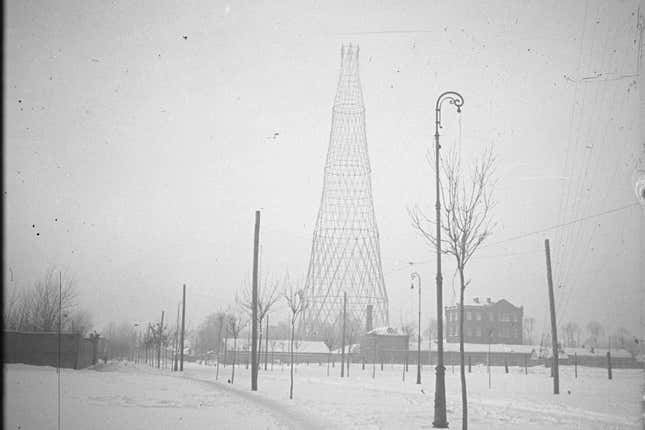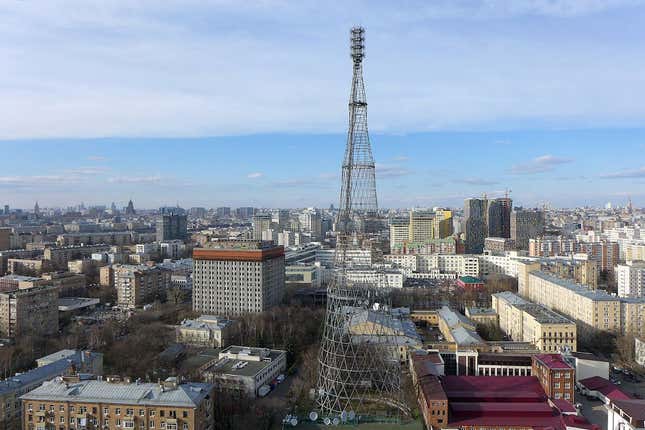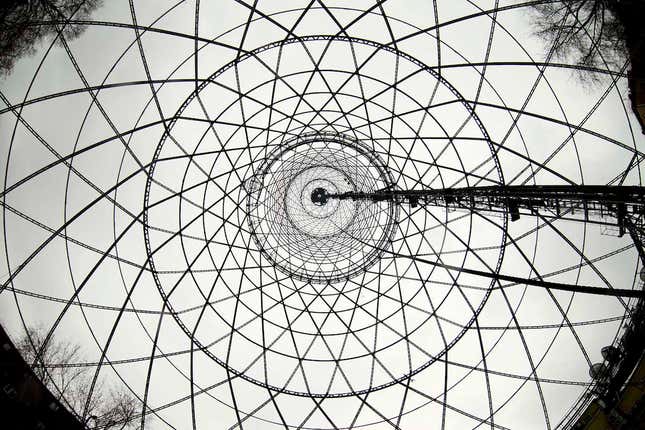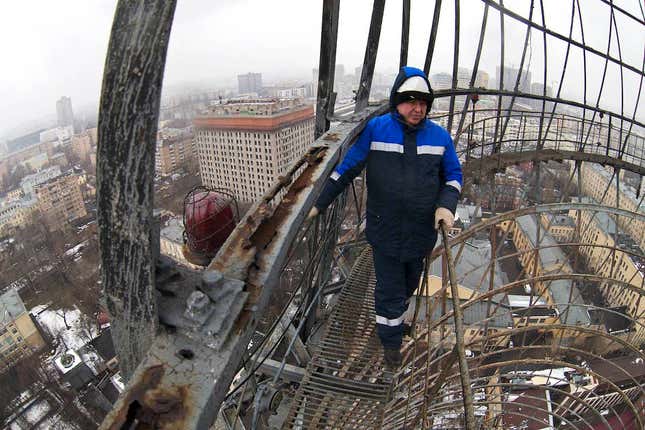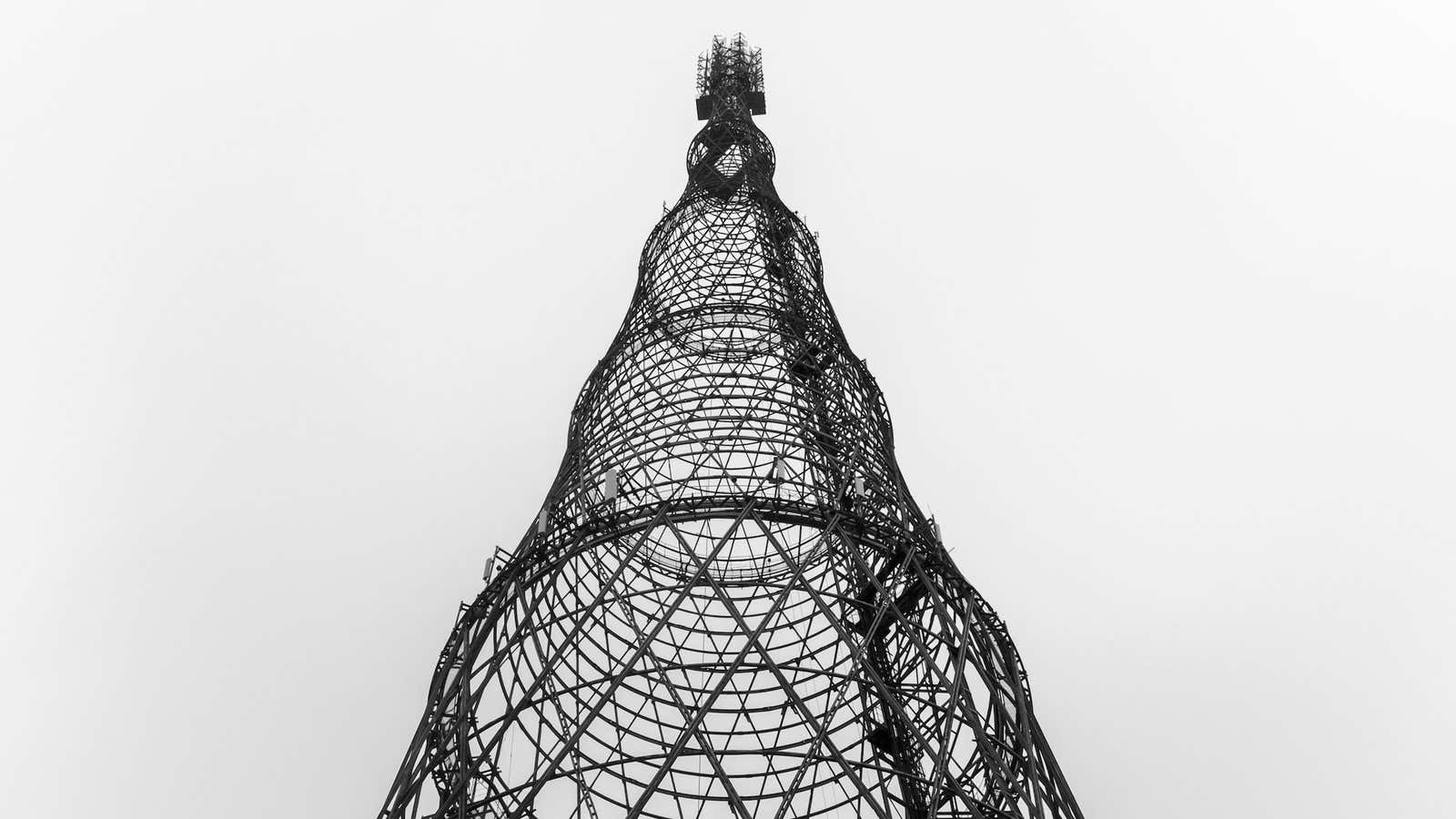The Moscow city government is asking citizens to weigh in on the fate of the Shukhov radio tower, a rusted icon of Soviet constructivist architecture that’s threatened with demolition. Designed by Vladimir Shukhov, the 92-year-old steel-lattice structure has been called Russia’s Eiffel Tower, but years of official neglect have left it badly in need of repairs.
Russia’s state broadcasting committee announced this spring that the tower would be dismantled and relocated, likely opening up the site to valuable development. Protesters, preservationists, and a starry array of international architects have petitioned President Vladimir Putin to reconsider, and restore the state-owned structure instead.
The vote, which began this week and runs until July 6, is being held on Active Citizen, an iOS and Android app released by the city last month. The app polls citizens on topics such as street-tree planting and changes to daylight savings time. On the question of the Shukhov tower, they’re being asked to choose between dismantling the tower and refurbishing it.
Other cities already use apps such as SeeClickFix and iCity to promote civic engagement and let residents report problems, though neither have provided platforms for popular referendums. Active Citizen goes a step further by offering incentives for participation: “free museum and theatre tickets, a Troika [metro] card, an hour of free parking, bicycle rentals, or other city services.”
Even so, it’s far from clear how much influence Active Citizen’s vote tally will actually have on what happens to the tower. When the app was launched, the city claimed it would ”allow Muscovites to take part in governing their city,” and the text of the referendum says that votes on Shukhov will be “taken into consideration” by city hall.
But relatively few citizens are likely to participate in the survey—the app’s previous record is 335,000 out of a population of 11.6 million, according to the English-language newspaper the Moscow Times. The newspaper also reports that a tycoon close to Russia’s deputy prime minister is thought to be a potential developer of the site—suggesting that the scale is already weighted in favor of demolition. It’s possible that the vote is simply meant to give a popular veneer to an action the government intends to take anyway.
And even if the government is listening, critics argue that the preservation of historic sites shouldn’t rest on popularity contests. “You just do not poll people on heritage,” Vladimir Shukhov Jr., the architect’s great-grandson, told the Times.
For a sense of why so many in the architecture world are intent on saving Shukhov, have a look at a few photographs of the tower, from the 1920s to the present:
